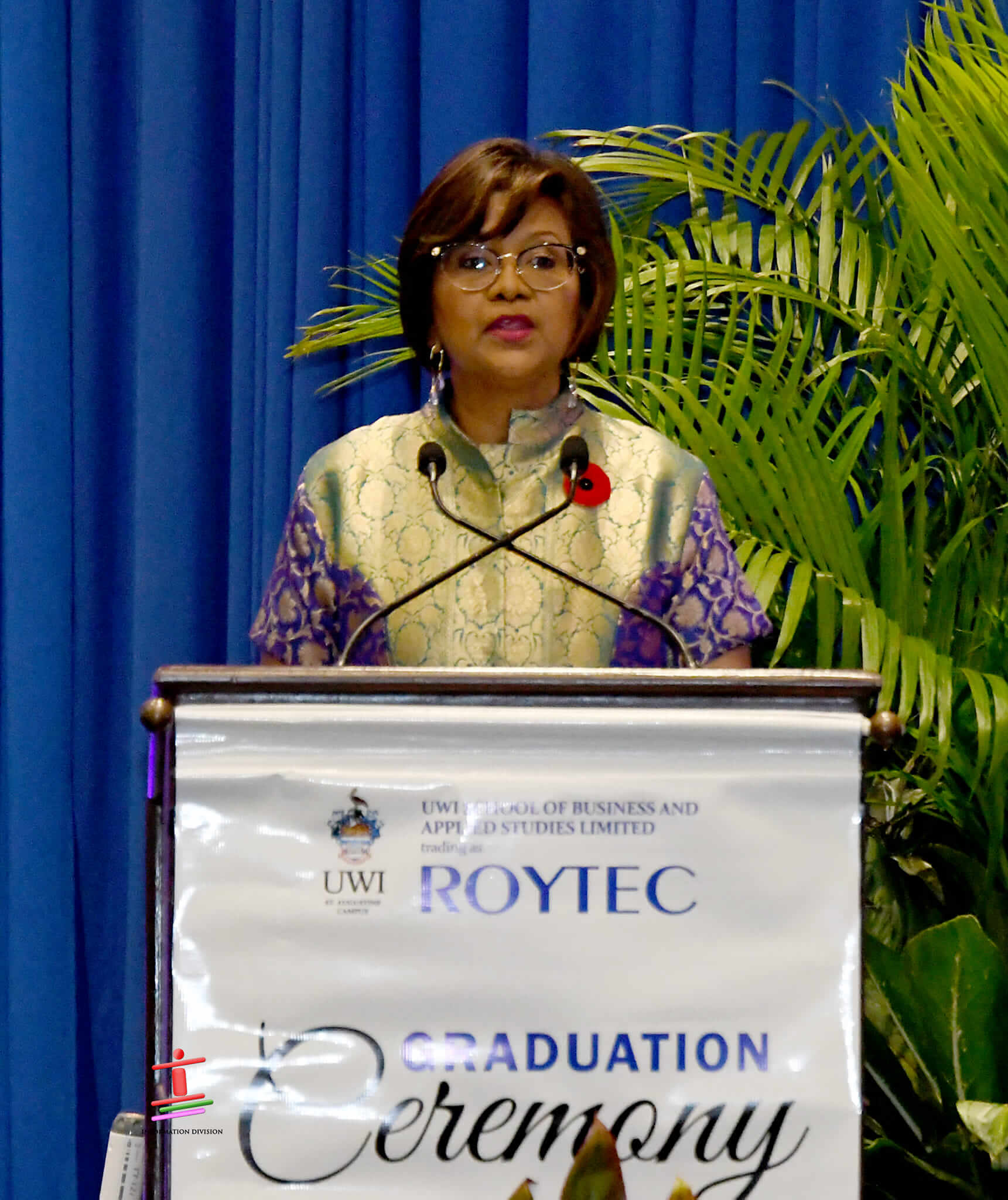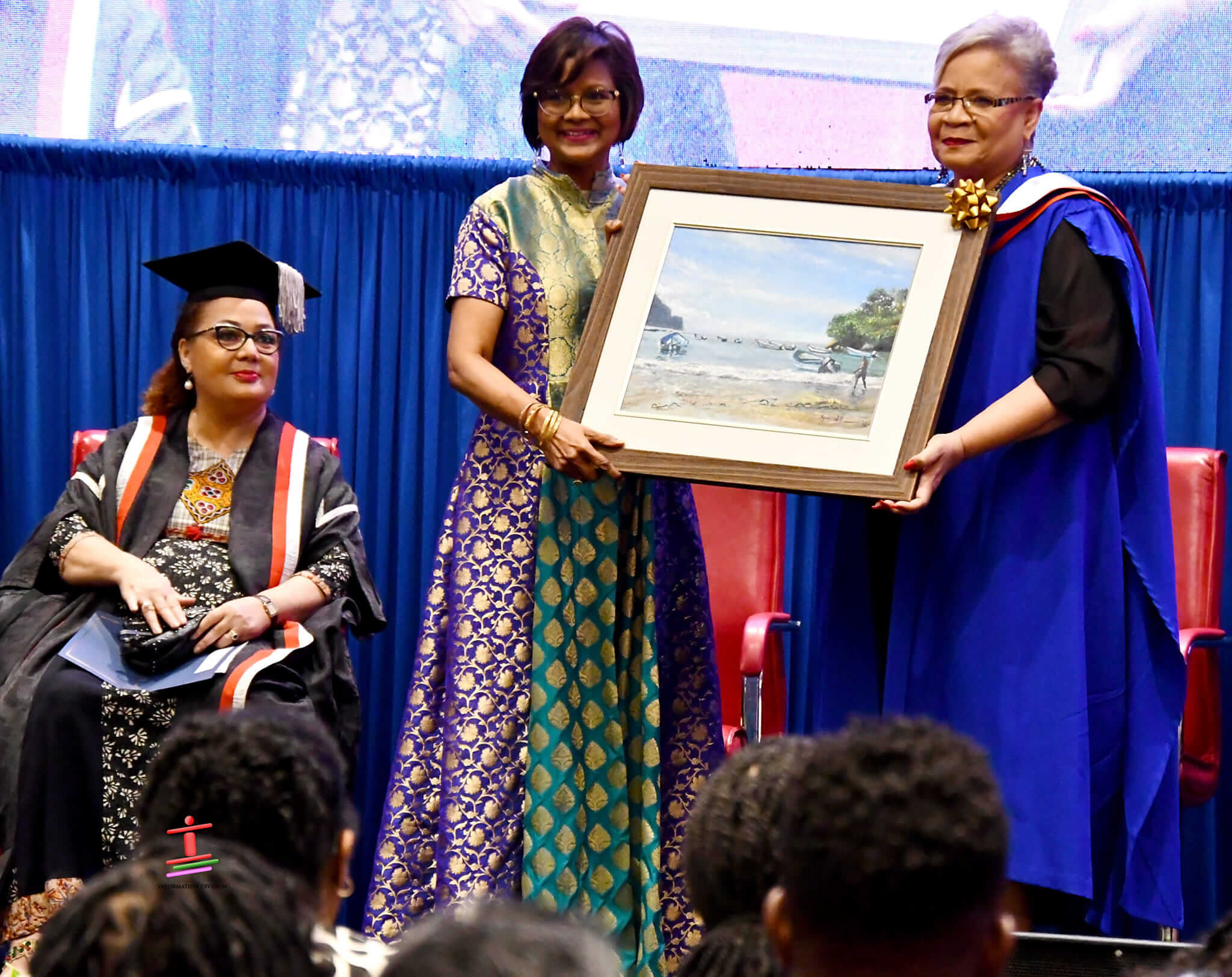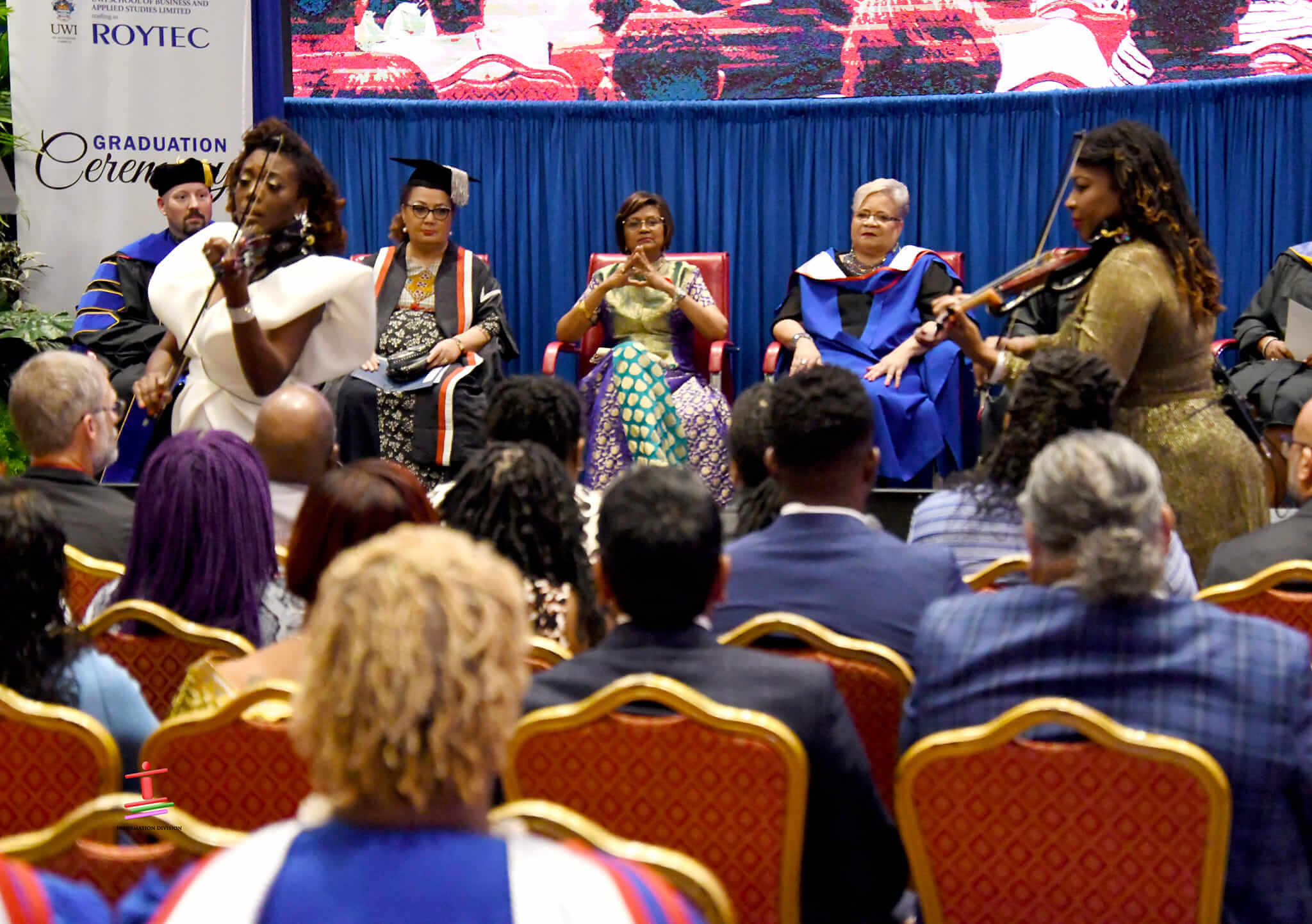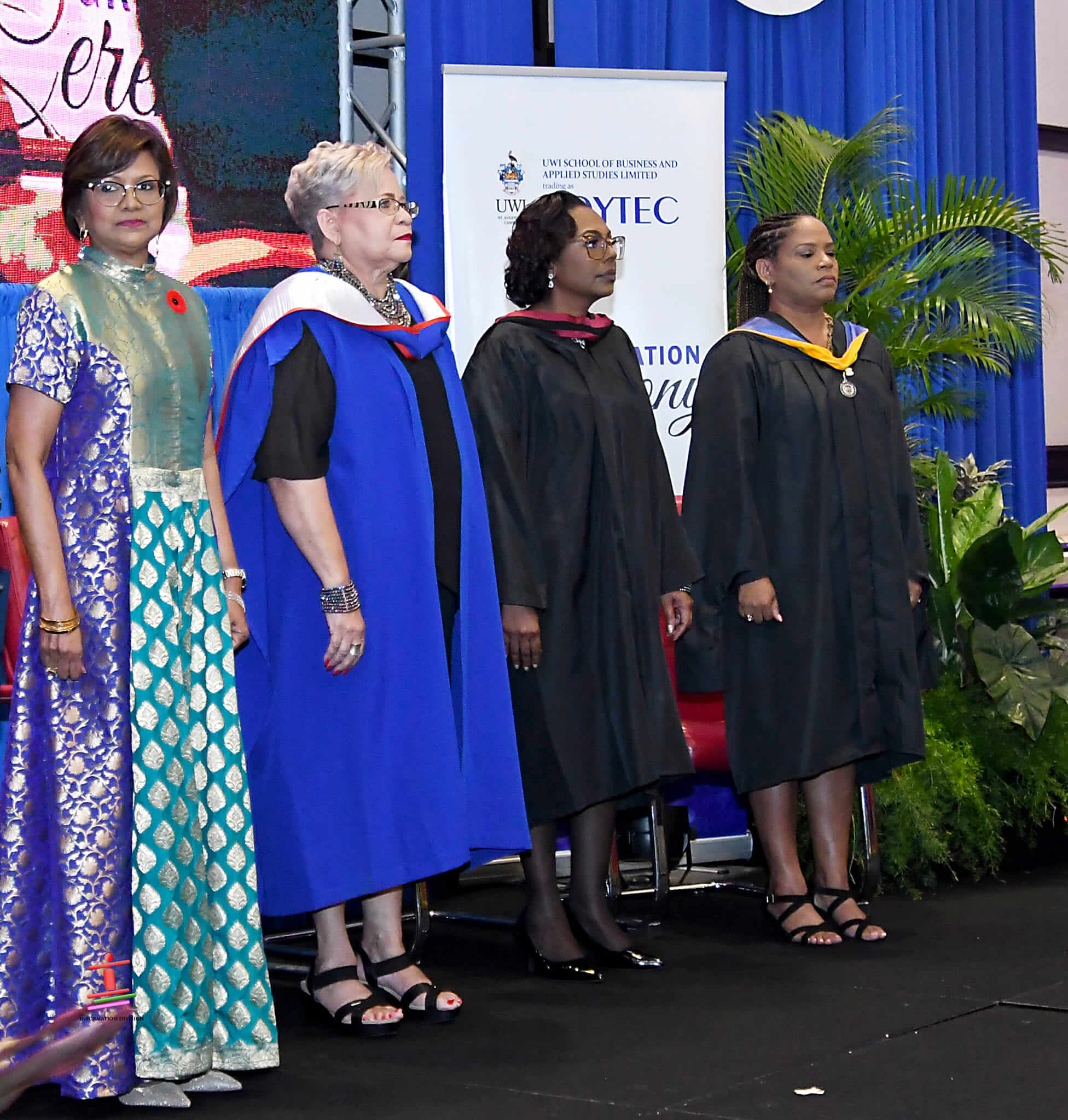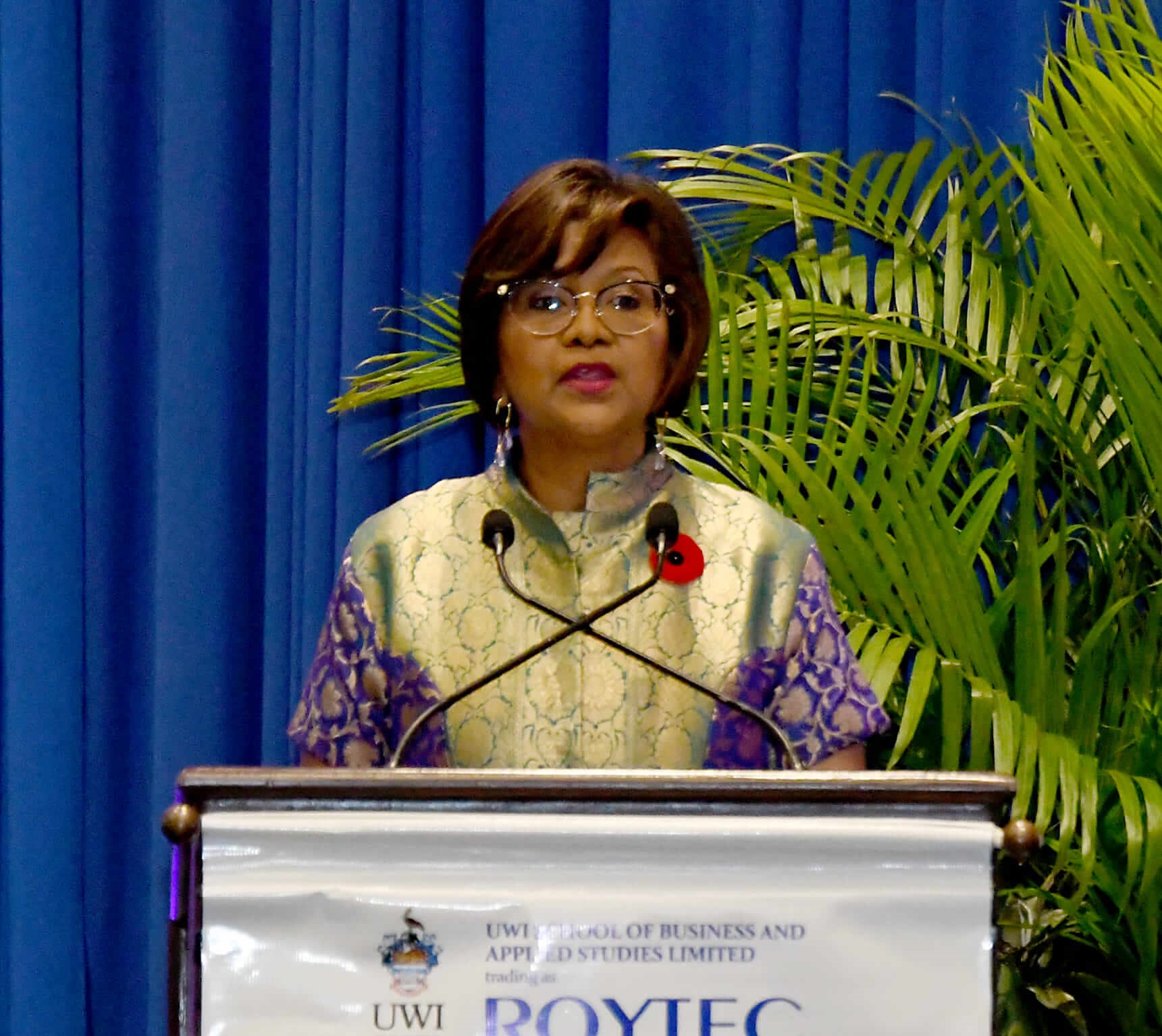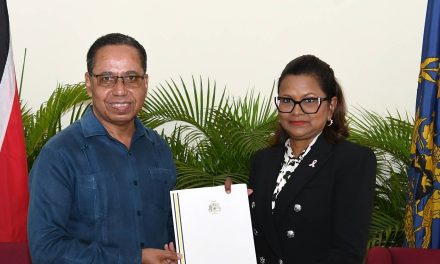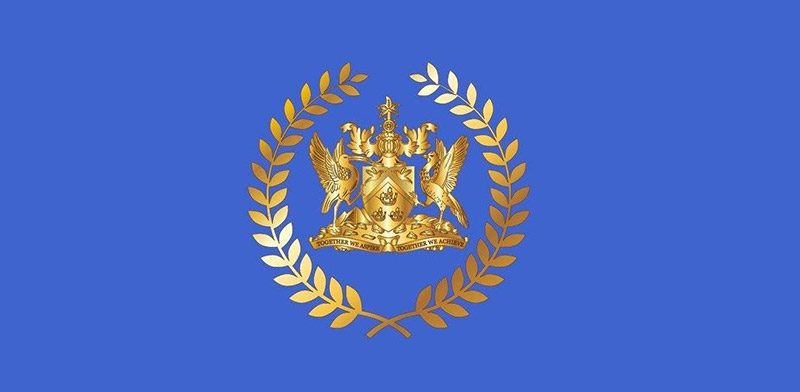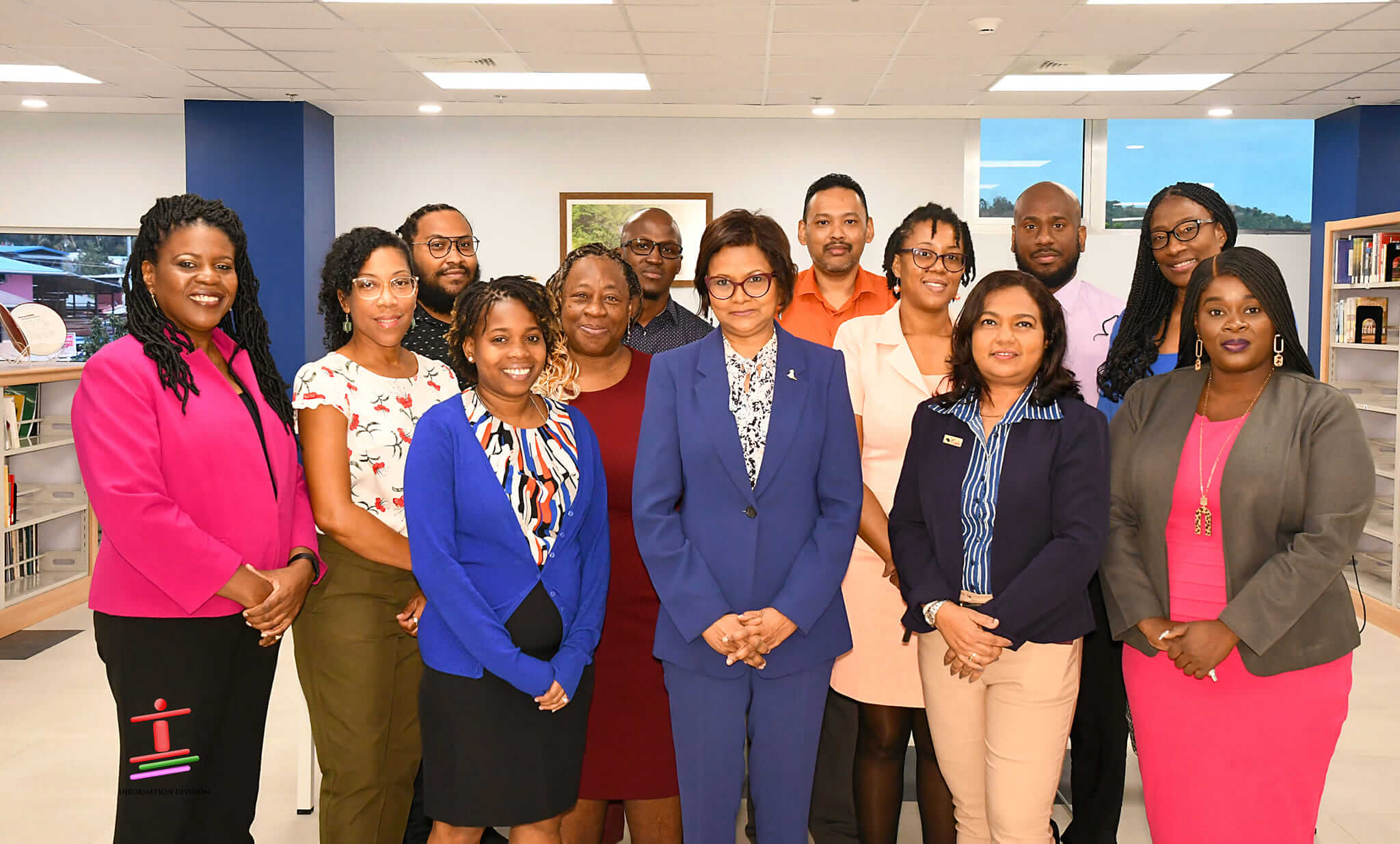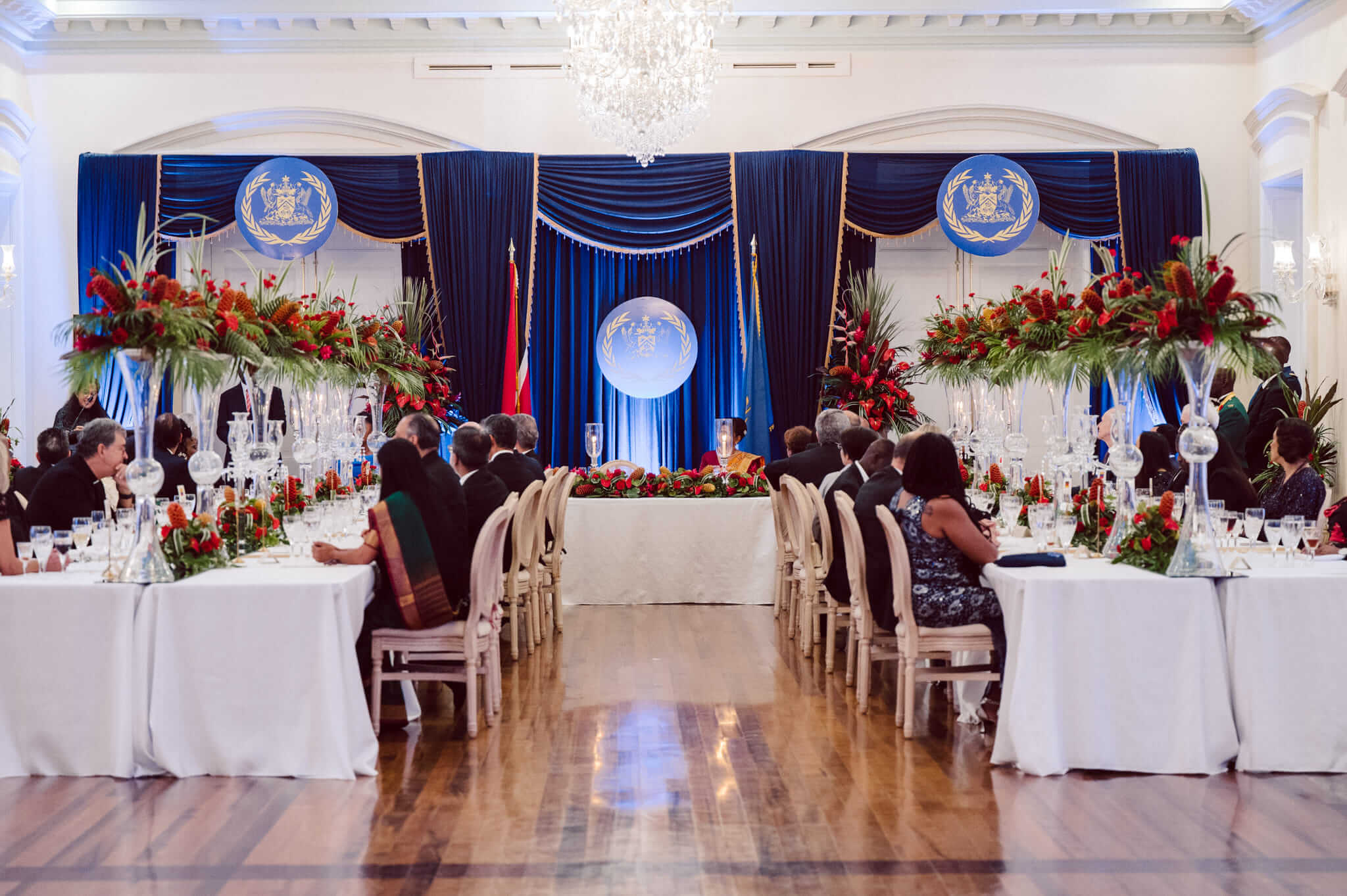Good evening, Class of 2023.
I am delighted to be here with you this evening, as we come together to celebrate the graduands of UWI-ROYTEC’s Degree, Certificate and Professional Development Programmes. I offer all of you my heartiest congratulations.
I am especially delighted to be here because of the theme of this evening’s proceedings – “Unity does not mean sameness. It means oneness of purpose.” What a thought-provoking theme. It is a theme that has engaged the attention of policy-makers, governments, sociologists, philosophers and saints, from time immemorial.
For myself, it was only this morning that I was thumbing through the Twelfth (12th) and the Thirteenth (13th) Chapters of St. Paul’s First Letter to the Corinthians. In those Chapters, St. Paul writes about the variety, but the unity of the many different gifts that God gives to each of us. He writes that though each of us might be given a different gift, we are all part of the same body. As I read the last verse of First Corinthians Chapter 13, I thought to myself – what wonderful serendipity there is in the world: that I should have been reading about unity in diversity this morning, and that I should be here with you this evening, being provided with an opportunity to add my own little take on a theme that those far wiser than I have been interrogating for centuries. And so, with a grateful heart for the hand of serendipity in the affairs of our lives, let me share with you my own view of the theme of this evening’s ceremony, and its implications for all of us.
Let me begin with the low-hanging fruit and say that unity does not mean sameness. Oneness is not sameness. Unity is not uniformity. What a dry, colourless and uninteresting world it would be were everybody to be the same as everybody else. It is our differences and our diversity that animate our existence and give life its flavour. Sameness is not utopia. It is lifelessness.
Unity, on the other hand – insofar as our human differences go – is a more nuanced and difficult concept. I believe that unity is the careful and mindful synthesis of each of our individual differences – of each of our different talents – to produce a blend that holds us together in the pursuit of a common purpose. It is true that there is sameness in unity – the sameness of purpose. But unity does not lie in eviscerating our individual differences for the sake of making us all the same. Rather, it lies in drawing our differences together and rallying them around a collective purpose that benefits the whole. As St. Paul might have put it, unity lies in the One and Same Spirit activating the whole, with its different parts, into the service of the common good. Whereas sameness is life-depleting, unity is life-giving.
I believe that, when it comes to activating our citizens’ different talents into the service of the common good, UWI-ROYTEC, as an organisation, occupies a very important position in our society. Your academic programmes in Business Management, Information Technology, and Teacher Education and your suite of corporate Training programmes, accommodate different talents and different aptitudes. And these programmes, by their very nature, give your graduates a golden opportunity to put their different talents into the service of the common good, in a way that few other institutions and programmes do.
Take, for example, your programmes in Teacher Education. My Mother- and Father-In-Law are both retired teachers; as were some of my Aunts. And, having known and lived with them, I can say this evening, without fear of the slightest contradiction, that it is our educators who drive the most important and positive changes in society. Your Bachelor of Education Programme for Primary School Teachers is said, on your website, to develop teachers who are reflective practitioners who practice an inclusive approach to teaching that recognises the diversity of children in the classroom. So that, what your Bachelor of Education Programme for Primary School Teachers does, is train teachers how to recognise the different talents of our primary school children and, I am sure, how to teach our primary school children to put their different talents to use in service of the whole. It seems to me that, in its explicit recognition of the significance of our schoolchildren’s diversity, and in teaching teachers how to teach our schoolchildren to put their diversity to work for the good of the whole, your Bachelor of Education Programme for Primary School Teachers is the very embodiment of the philosophy that Unity does not mean sameness. It means oneness of purpose. And, it also seems to me that, since our schoolchildren are being taught by graduates of UWI-ROYTEC about the value of their differences and how to synthesize them to produce a blend that holds us together in the pursuit of a common purpose, then we all have cause to be tremendously hopeful about the future of our country.
I am also excited by the potential of your academic programmes in Business Management and by your suite of corporate Training programmes, to build up a cadre of business professionals who are able to turn their attention increasingly towards the issue of policy and policy-making.
I think we can all agree that changed behaviours are badly needed in many areas of national life. What the research is suggesting is that both behavioural change and policy change are required to achieve large-scale social change — and that they need to happen together. The research suggests that social change occurs when behaviours and institutions are interdependent, and that although neither can get the job done on its own, policy change is especially critical.
Two days ago, I had the privilege of attending the Divali Nagar celebrations. The theme of the celebrations this year is “Mother Earth”. I said then, and I repeat this evening, that our nation is extremely blessed to have had the National Council for Indian Culture select this as the theme for this year’s Divali Nagar celebrations. Protecting and honouring Mother Earth is among the most significant and urgent responsibilities we have in the world today. Enter, centre-stage, UWI-ROYTEC’s academic programmes in Business Management and your suite of corporate Training programmes, with their potential to train and develop business-leaders who can influence policy-making in a manner to drive and reinforce the changed behaviours that are urgently necessary to avoid further and irreversible depletion of Mother Earth’s resources. One example coming out of the research into the interconnection between behavioural change and policy change, is that of a State that wants to spread compliance with a new organic composting regime which would benefit the environment. Imagine that to make the regime work, all collected waste must be purely organic material. But contributing pure organic waste takes effort for households, so that the behaviour does not take off on its own. But, if communities implement policies that encourage and reward the desired behaviours, these successful community programs can spread and result in effective, large-scale change.
This, I believe, is both the value of and the opportunity that is provided by your academic programmes in Business Management and your suite of corporate Training programmes – your programmes help to train future and existing business-leaders in the role they have to play in shaping national policy which conscripts businesses in identifying and rewarding desired social behaviours. In the case of our country’s future and existing business-leaders, your programmes educate them on how to pull together the different elements of policy-change and behavioural-change, in order to serve the common good of the whole.
I believe that it is not just the variety of the programmes that UWI-ROYTEC offers, but its different approach to teaching the same things, that makes the institution, and its graduates, stand out. As an institution of applied learning, UWI-ROYTEC’s students apply knowledge and skills gained from traditional classroom learning in hands-on and real-world settings, and in turn apply what is gained from the applied experience to academic learning. At UWI-ROYTEC, unity does not mean sameness. It shares the same, unified goal of education that many of our tertiary-education institutions do. But it goes about imparting and reinforcing that education in a fundamentally different way. At UWI-ROYTEC, unity means oneness of purpose, because its one purpose is to create learners who exceed workplace expectations. I have every confidence that this is precisely what the organisation is doing. And I have every confidence that those whose graduation we are privileged to witness this evening, will exceed workplace expectations.
What a truly remarkable country, is this in which we live. We are celebrating the Hindu Festival of Divali in a few days. Today, I shared with you glimpses from a writing by a Christian Saint. We are a country and a people who are made up of diverse races and religions. Yet we celebrate one another’s festivals, and we joyously participate in one another’s religious observances. We are a people who understand that although each of us is different, we are all part of the same body. We are a people who are unified by a common purpose – the well-being of our nation as a whole. We are a country that proves that unity does not mean sameness. It means oneness of purpose. I am so thankful that we are also a country that boasts of institutions like, and of graduates from, UWI-ROYTEC. If any were needed, this institution, and the graduates whose success we celebrate this evening, give further proof that unity does not mean sameness. It means oneness of purpose.
Congratulations once again and I wish you the greatest success in your future adventures.
Thank you.
